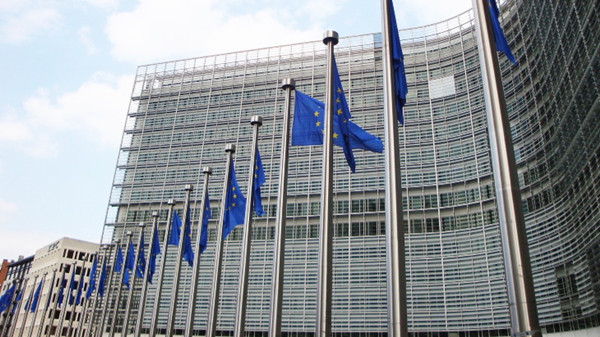JRC to assess nuclear's inclusion in EU Taxonomy
Foratom, the European nuclear trade body, has welcomed the European Commission's decision to appoint its Joint Research Centre (JRC) as the group of experts that will assess nuclear under the sustainable finance taxonomy. However, the JRC will not submit its findings until next year, after the relevant acts have already been finalised.

The European Commission building in Brussels (Image: Pixabay)
The final recommendations on the EU Taxonomy by the technical expert group (TEG) advising the European Commission (EC) on sustainable finance were published on 9 March. These included guidance to help investors and companies meet obligations for reporting against the framework. The TEG on Taxonomy concluded that there is clear evidence that nuclear substantially contributes to climate mitigation. However, it also concluded at that point "the evidence about nuclear energy is complex and more difficult to evaluate in a taxonomy context" regarding the potential significant harm to other environmental objectives. It recommended that more extensive technical work should be undertaken.
In response to those recommendations, seven utilities promptly wrote to the EC, urging it to create an independent group of scientists and experts to evaluate whether nuclear power is a low-carbon and sustainable source of electricity. In late April, a group of more than 100 scientists and environmentalists, led by the Sustainable Nuclear Energy Technology Platform, wrote to the EC calling for a "timely and just assessment" of nuclear energy in the EU Taxonomy
In a 10 June document, the EC noted that while nuclear energy is generally acknowledged as a low-carbon energy source, opinions differ notably on the potential environmental impacts of nuclear waste.
"After weighing different options, the Commission has decided to request the Joint Research Centre to draft a technical report on the 'do no significant harm' aspects of nuclear energy. This report will be reviewed by experts on radiation protection and waste management under Article 31 of the Euratom Treaty, as well as by experts on environmental impacts from an equivalent Commission environmental group or committee."
The EC added, "The Commission considers that the credibility of this assessment is crucial. It should be scientifically rigorous, transparent and bring together a balanced set of views. It should also reflect the principle of technological neutrality, as included in the Taxonomy Regulation."
However, it said JRC's assessment of nuclear energy is not expected to be completed until the beginning of 2021.
"In the meantime, work on adopting the delegated act on all other economic activities that can substantially contribute towards climate change mitigation and adaptation by the end of 2020 continues apace, irrespective of the separate assessment on nuclear energy," it said.
The EC said it may consider amending the delegated act (DA) on the climate objectives by the end of 2021, "provided all conditions for inclusion are met".
In a 3 July statement, Foratom welcomed the EC's appointment of JRC to assess nuclear under the sustainable finance taxonomy. This, it said, will enable a robust, science-based assessment of nuclear.
"This shows that they have taken recommendations that nuclear be assessed by scientific experts seriously," said Foratom Director General Yves Desbazeille. "This is something which many stakeholders - including industry, several Member States and MEPs - have been calling for over the past year.
"Foratom regrets the fact that the assessment will not be ready in time. Whilst the Commission has indicated that it may consider revising these DAs in 2021 to potentially reintroduce nuclear, we would recommend that the evaluation of the energy sector should be postponed until the assessment of nuclear is complete. Otherwise, it risks distorting the market by enabling some technologies to access relevant funds before others."
Researched and written by World Nuclear News
- China Institute of Atomic Energy
- Nuclear Power Institute of China
- Southwestern Institute of Physics
- China Nuclear Power Operation Technology Corporation, Ltd.
- China Nuclear Power Engineering Co., Ltd.
- China Institute for Radiation Protection
- Beijing Research Institute of Uranium Geology (BRIUG)
- China Institute of Nuclear Industry Strategy (CINIS)
- China Nuclear Mining Science and Technology Corporation


